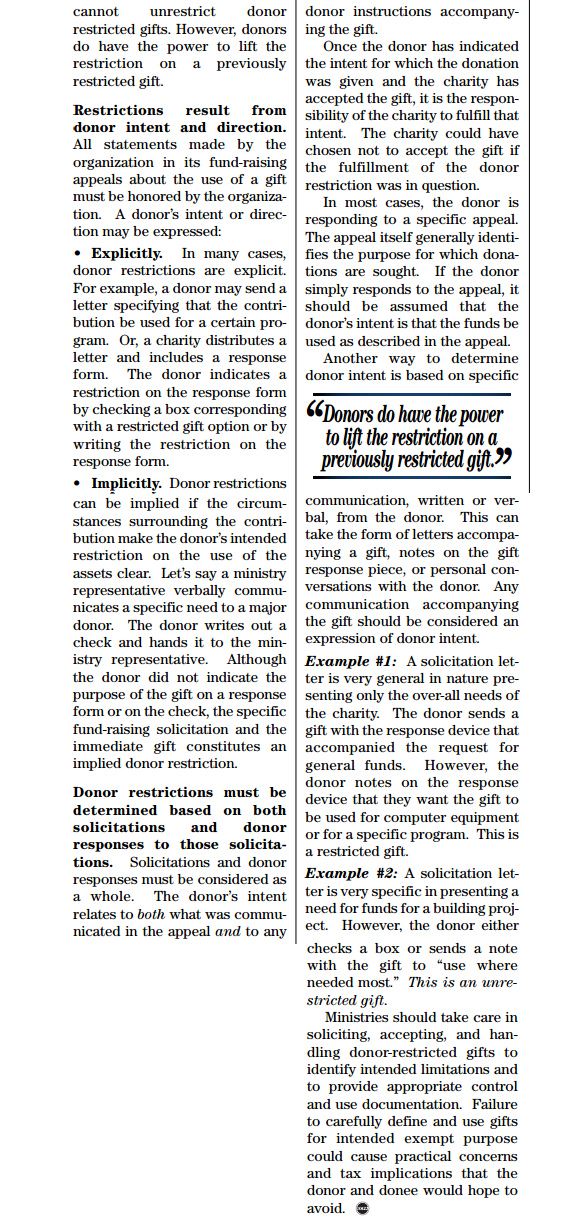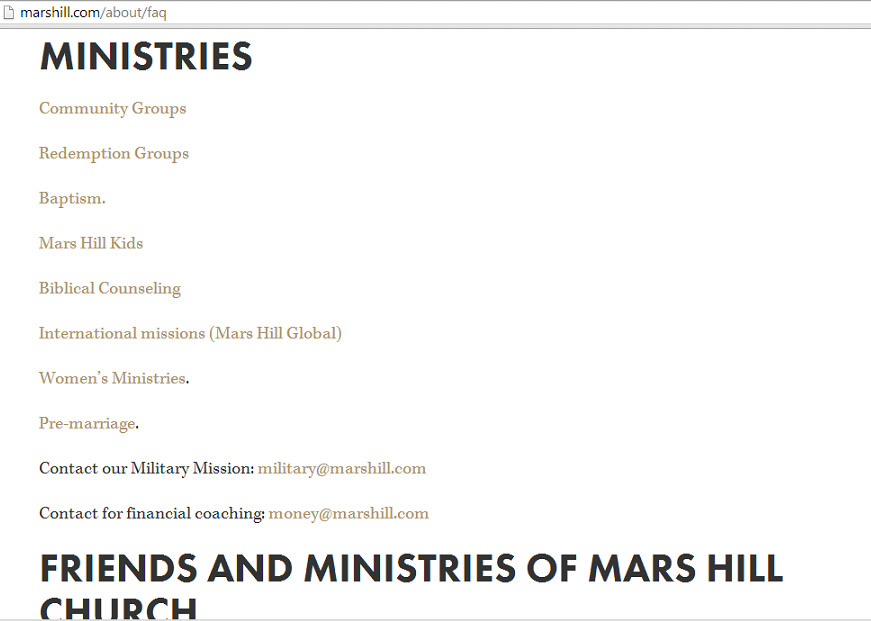Rob Smith continues to raise questions for the Evangelical Council for Financial Accountability. In a column this morning, Smith asks: Why is ECFA certifying churches without requiring the same public disclosure as non-churches?
While Smith believes the government should not insist on wider disclosure, he believes the ECFA should insist on a similar level of disclosure from the organizations who are accredited by the organization. Lack of transparency should be a red flag about the church and about the ECFA.
While they may be above it all, the comments at the Change.org petition continue to sharply criticize the Evangelical Council for Financial Accountability for their handling of the various problems at Mars Hill Church. The ECFA remains silent in the face of nearly 140 signers as of this morning.
The comments bluntly call on the ECFA to drop Mars Hill and restore credibility to ECFA accreditation.
Former member Sara Brinton said:
We were members at Mars Hill for 10+ years. Through those years, we gave sacrificially. Although my husband had a good corporate job, there were lots of months we struggled to afford groceries because of the amount we were giving to the church. Mars Hill taught us that this was the right thing to do. We gave because we thought we were on mission – that we shared a genuine desire to see people in our city and around the world meet Jesus. We are devastated as more and more of the truth comes out. We are angry and we feel we have been deceived by a church that was misusing funds and taking advantage of orphans and widows.
James Petroski wrote:
The ECFA seal means nothing if MHC is allowed to receive a positive rating by the organization.
Jim Caldwell wrote:
The financial integrity of every entity effects every other group in the ECFA.
Al Doyle wrote:
Over the years, as a donor, I have relied on ECFA to vet and authenticate the practices of Christian professing non-profit organizations. As a former Board member of more than one 501 (c ) 3 organizations, I have relied on ECFA guidelines to shape financial practices. This is a very public and egregious situation that needs immediate investigation and attention with the intent to protect the interests of the hundred of faithful donors giving to a cause that may be misrepresented.
Stephanie Hopkins:
I listened to MH sermons while attending a healthy church for years. After moving to Seattle, I attended MH-Ballard for most of 2011. I was deeply concerned and disgusted by what appeared to me to be deceptive fundraising campaigns and exorbitant spending practices for a church once I was attending and part of their communication network. What stood out most was an email at the end of the year thanking us for helping meet budget after a month of pleas for funds specifically to help a list of projects and open four new campuses – nothing about the fundraising goal amount being something like half regular budget was mentioned until we were told that is what the money raised was going to first and that anything extra in the next few days would actually go to the projects we’d been receiving emails and messages about the funds going to all month. I stopped giving and eventually attending specifically because it seemed to me that their financial practices were opaque and deceptive. Unless and until the ECFA removes MHC, I can be nothing but suspicious and skeptical of their endorsement of any organization or church. As long as MHC is endorsed by the ECFA I can only believe that their endorsement is nothing more than a purchased rubber stamp.


